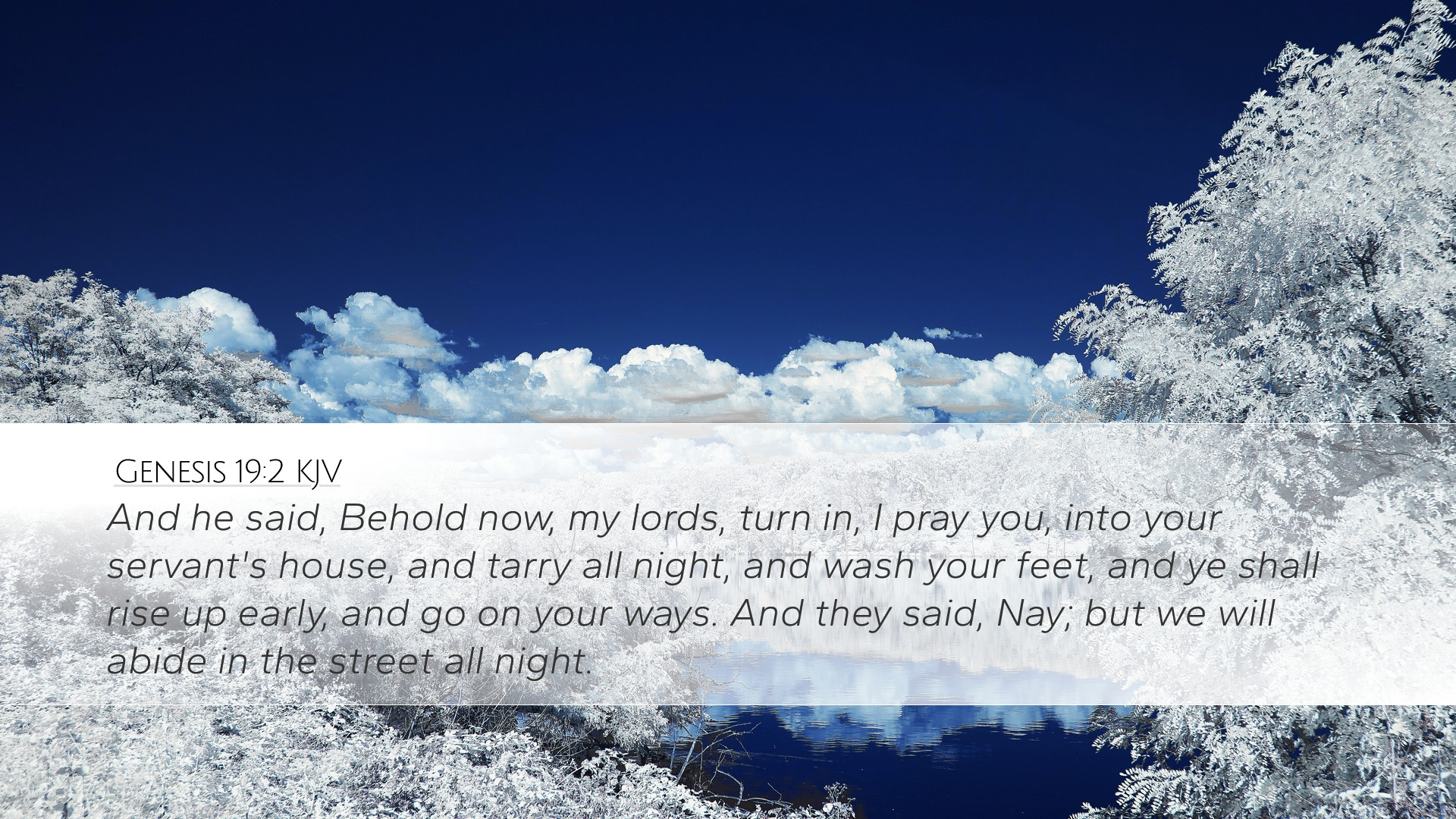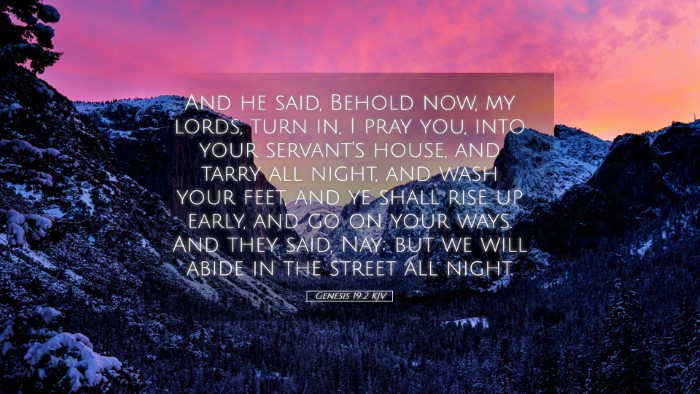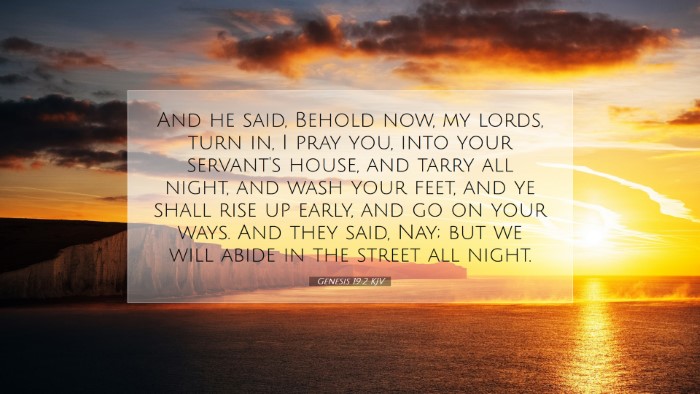Commentary on Genesis 19:2
Verse Context: Genesis 19:2 states: "And he said, Behold now, my lords, turn in, I pray you, into your servant's house, and tarry all night, and wash your feet, and ye shall rise up early, and go on your ways. And they said, Nay; but we will abide in the street all night."
Exegesis and Thematic Insights
This verse is pivotal in the narrative of Sodom and Gomorrah, illustrating themes of hospitality, righteousness, and divine judgment. The actions of Lot are laden with significance, as they establish both his character and the grave situation in which the cities find themselves.
Hospitality in Ancient Near Eastern Culture
Matthew Henry emphasizes the importance of hospitality in the ancient Near East. Lot's offer to the angels reflects a deep cultural norm where welcoming strangers was both an obligation and a virtue. It is more than a mere act of kindness but a demonstration of righteousness amidst a corrupt society.
- Obligation to Strangers: In verse 2, Lot calls the visitors "my lords," acknowledging their authority and importance, which indicates his respect for the divine presence, albeit somewhat unaware of their true identity.
- Implication of Tarrying: Lot’s request to stay in his house rather than the street symbolizes the danger inherent in the city. His concern for their safety showcases his protective nature, standing in stark contrast to the behaviors exhibited by the Sodomites later in the chapter.
Lot's Character and Actions
Albert Barnes notes that Lot’s offer demonstrates personal sacrifice and a willingness to serve. Despite living in a depraved city, he retained a sense of righteousness which prompted him to act benevolently towards these heavenly visitors.
- Contrast with Sodom’s Inhabitants: Barnes highlights that the willingness of Lot to host the angels and distinguish himself from the immoral citizens of Sodom is critical for understanding his character while foreshadowing the impending calamity.
- Preservation of Divine Principles: Lot's actions are a testament to his commitment to divine values amidst severe moral decline, suggesting that even in a corrupted society, believers can maintain integrity and righteousness.
Theological Implications of the Invitation
Adam Clarke brings attention to the theological dimensions of Lot's invitation. He interprets the angels’ initial refusal to dwell in Lot’s house as a test of faith and moral integrity amidst a wicked environment.
- Faith in Action: Clarke asserts that Lot's persistence in inviting the guests indicates his deep conviction and faith in the sacredness of their presence, even while facing the overarching societal wickedness surrounding him.
- Sovereignty of God: This episode illustrates God’s sovereignty, as even amidst defiance of His will, He orchestrates events leading to Lot’s eventual rescue, showing that divine mercy often operates through human action.
Literary Structure and Rhetorical Devices
The structure of Genesis 19:2 serves to heighten tension within the narrative. There is a notable progression between Lot’s fervent invitation and the angels’ response. The repetition of thoughts—“tarry all night” and “rise up early”—reflects urgency and an underlying dread about the dangers in the city.
Applications for Modern Readers
In addressing contemporary audiences, it is vital to extract moral lessons from Lot’s conduct:
- Hospitality as a Christian Virtue: This passage calls upon believers to cultivate hospitality as a reflection of God’s love and grace towards strangers and one another.
- Righteousness in a Corrupt Society: Modern-day followers of Christ can draw encouragement from Lot’s example to remain steadfast in moral integrity, resisting the pervasive influence of societal sin.
- The Power of Intercession: Considering Lot's heart for the safety of the angels, there is an invitation for believers to intercede on behalf of their communities, seeking divine intervention amidst calamity.
Conclusion
Genesis 19:2 offers a rich tapestry of insights from the perspectives of biblical commentators. These reflections underscore the importance of hospitality, the contrast of righteousness with wickedness, and the overarching narrative of divine sovereignty and mercy. For pastors, students, theologians, and scholars, this verse serves as a reflective touchstone on the nature of faith and the role of the believer amidst darkness.


